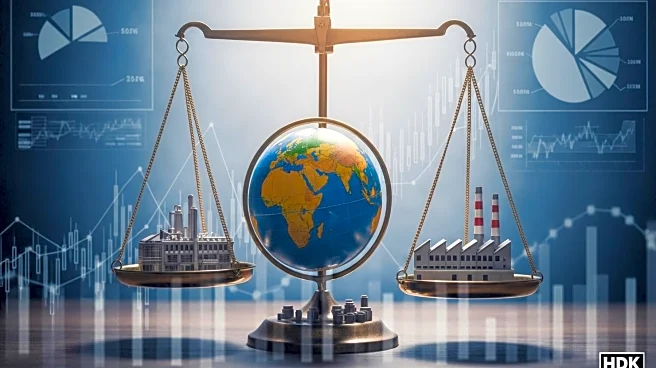What's Happening?
President Trump's administration has implemented a series of tariffs affecting a wide range of imports, including goods from over 90 countries. These tariffs, intended to boost the U.S. economy, have generated significant revenue but also created uncertainty for American consumers and businesses. The tariffs have targeted various industries, including pharmaceuticals, kitchen cabinets, and lumber, leading to increased costs for domestic manufacturers and consumers. Despite the initial market volatility, the stock market has shown resilience, although certain sectors, such as manufacturing and agriculture, continue to face challenges.
Why It's Important?
The tariffs have significant implications for the U.S. economy, affecting both consumers and businesses. While the tariffs have generated substantial revenue, they have also led to increased costs for imported goods, contributing to inflationary pressures. The manufacturing sector, which was expected to benefit from these policies, has struggled due to increased input costs. Additionally, the agricultural sector has been hit hard, with reduced exports to China affecting farmers' livelihoods. The ongoing uncertainty surrounding tariff policies complicates long-term business planning and could have broader economic repercussions.
What's Next?
The future of these tariffs may be influenced by upcoming Supreme Court rulings, which could determine the legality of the tariffs under existing laws. If the court rules against the administration, it could lead to the removal of some tariffs and potential refunds of collected revenues. Meanwhile, businesses and policymakers will continue to navigate the uncertain economic landscape, with potential adjustments to trade policies depending on legal outcomes and international negotiations.
Beyond the Headlines
The tariffs highlight broader issues related to trade policy and economic strategy. The administration's approach has sparked debates about the balance between protectionism and free trade, as well as the role of government intervention in the economy. The situation underscores the complexities of global trade and the challenges of implementing policies that support domestic industries while maintaining international competitiveness.









